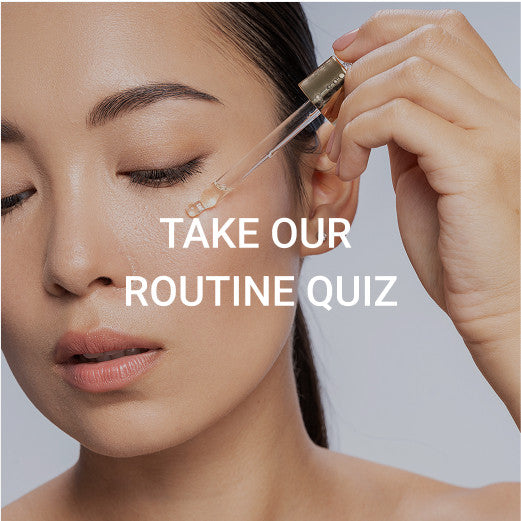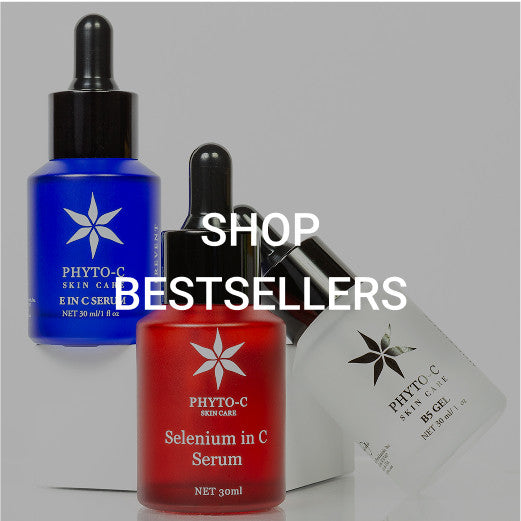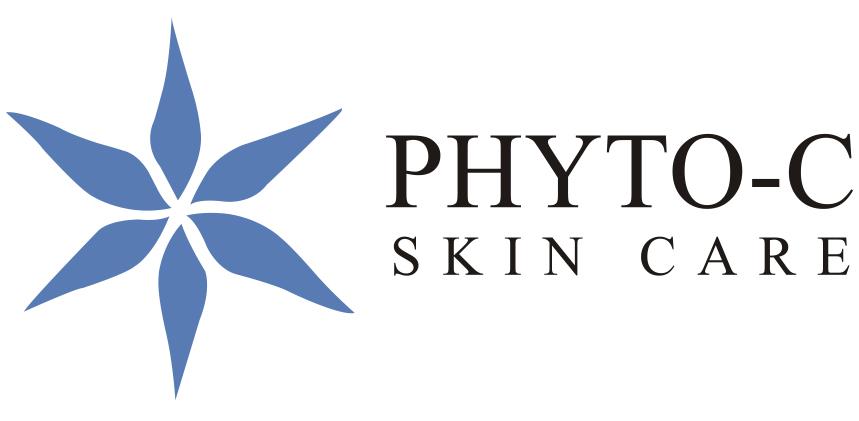Getting oily skin can seem like you’re fighting it all the time. When there’s too much oil, skin issues like shiny areas, clogged pores, and acne usually follow, so it’s hard to choose a proper skincare routine. Face serum is the one product that has the power to help oily skin. As they are light on the skin and full of ingredients, serums help handle excess oil, calm inflammation, and improve how your skin looks. This article covers face serum for oily skin, explains why vitamin C serums shine, describes the best way to use them, and shows why picking the right serum matters.
Various Kinds of the best face serum for oily skin
Picking the best face serum for oily skin is very important. Serums are designed to bring important ingredients into your skin, leaving no excess residue. For people with oily or sensitive skin, the best kind of serum is one that is light and based on water. A lot of people prefer vitamin C serums because they fight uneven skin color and help with excess oil. The next set of products is made up of niacinamide, salicylic acid, hyaluronic acid, and serums that feature peptides. A toner, essence, and emulsion each help with oily skin by decreasing the oil, relieving irritation, and adding moisture to the skin.
Vitamin C Face Serum
Typically, oily and sensitive skin is treated with vitamin C face serum that is formulated with a steady sort of vitamin C that prevents quick oxidation and irritation. By using this antioxidant, pigmentation and dark marks on the skin are lightened, and collagen in the skin is boosted to keep it soft and supple. If you have oily skin, these serums are easy to apply and don’t leave you looking shiny. Because they reduce oily skin and help unclog pores, vitamin C serums make breakouts less likely. Because they don’t irritate and improve skin quickly, they are ideal to use daily, even if you have oily or reactive skin.
Niacinamide Face Serum
Niacinamide, or vitamin B3, helps people with oily, sensitive skin by adjusting the oil glands’ activity and calming irritated areas. As a result, the skin gets less shiny, and pores appear smaller with frequent use. Gentle, unscented, and quickly absorbed, niacinamide serums are probably the best bet for those with easily irritated or red skin. Overall, apart from helping control oil, niacinamide lowers inflammation, energizes skin, and reinforces the skin’s defense, which decreases moisture loss and marks acne outbreaks. With regular clay masks, your skin will look smoother, feel less irritated, and have better balance.
Salicylic Acid Face Serum
Because salicylic acid is a beta hydroxy acid, it’s capable of cleaning deep into the pores, which is beneficial for those with oily skin who have acne or blackheads. Gentle exfoliation removes dead skin from inside the pores, and the oil-breaking action keeps pores open and free from blockages. To prevent dryness or irritation for sensitive skin, the best concentration of salicylic acid should be low. Wearing a serum designed for enlarged pores a few times per week can help keep pores unclogged, reduce redness, and still allow the skin to keep its moisture. Gradually, salicylic acid serums smooth the appearance of the skin and help manage overactive oil production for sensitive, oily skin.
A Hyaluronic Acid Face Serum
Because people generally believe oily skin doesn’t need moisturization, hyaluronic acid serum hydrates it without adding more oil. Hyaluronic acid works to keep the skin hydrated and helps calm the irritation and redness found in sensitive, oily parts. Because of how quickly and lightly they absorb, these serums work well at the beginning of your skincare routine. Hydration with hyaluronic acid helps lower the chance of the skin making excess oil when it’s dehydrated. On the whole, these serums make oily, sensitive skin look softer, fuller, and calmer.
Peptide Face Serum
Peptides tell the skin to enlarge its collagen supply and help the skin heal. Peptide serums are designed for oily skin because they are not heavy and won’t clog your pores or make your face oilier. Those with oily skin that’s beginning to show signs of aging or uneven texture can depend on peptides, as they tighten and smooth the skin. These products bundle the skin’s recovery, soothe any irritation, and protect the outer layer of the skin. Because they are mild and light, peptide serums are suitable for sensitive, oily skin, helping with aging without making the user prone to breakouts.
Why Vitamin C Serum for Oily Skin is the best choice?
Because they serve multiple purposes, vitamin C facial serum are important for oily skin care. In addition, they even out skin tone, reduce oil, and calm inflammation. So, skincare experts usually look to vitamin C for treating oily and sensitive skin types. Find out why vitamin C serum tends to perform better than other serums on oily skin.
1. Deals with excess oil and brings radiance to the face
Vitamin C serum for face helps to regulate oil on your skin by shielding skin cells from oxidative stress, which can increase both oiliness and acne. It also improves the appearance of dark marks and uneven skin resulting from prior breakouts. The use of both helps to clear the skin and reduce how much it shines.
2. Supports the regeneration of collagen and the skin
Thanks to vitamin C, collagen is created, which leads to better, toned skin. Adding collagen to the skin reduces the size of pores and lightens the appearance of acne scars. When your skin is sensitive, soothing substances can calm your skin and help it to heal.
3. It adds a lot to other mixtures
Vitamin C works well with other products for healthy skin, such as niacinamide, hyaluronic acid, and gentle exfoliants. If you use these ingredients together, you’ll reduce oil, hydrate your skin, and see clearer results without upsetting sensitive skin.
4. Provides Antioxidant Protection
Vitamin C helps protect the skin against pollution and UV rays, which cause problems for oily skin. Your skin will be healthier and will normally have fewer pimples or breakouts.
Using a vitamin C serum in skincare for better Result
Vitamin C with Niacinamide is available
If your skin is both oily and sensitive, vitamin C and niacinamide are perfect ingredients for you. Vitamin C makes your complexion less oily, and niacinamide helps reduce redness and produces the right amount of sebum. These ingredients used together can enhance your skin tone, reduce swelling, and shrink your pores. If you have sensitive skin, always wait minutes after using vitamin C serum before putting on niacinamide. Combined, they help your skin become balanced, protect it from outside factors, and prevent both extra oil and dryness. The combination works best like 20 vitamin C serum when you use several layers on oily and sensitive skin.
Products that have vitamins E and C
Vitamin C and hyaluronic acid together give your oily skin a soothing, bright, and hydrated finish. Vitamin C reduces extra oil in your pores and helps your skin even its color, and hyaluronic acid attracts moisture without leaving a greasy layer. Together, this combo is less likely to leave your skin feeling dry, as vitamin C can do when used alone on sensitive skin. Using that order helps your skin avoid dryness, feel refreshed, and remain calm even when exposed to stressful conditions. Using both ingredients together improves the skin’s toughness and leaves the face looking smooth and glowing without causing blocked pores.
Vitamin C with Salicylic Acid (Carefully)
Vitamin C used with salicylic acid helps to brighten and remove dead skin cells for people with oily skin experiencing acne. Through using it, vitamin C can help dark spots, and salicylic acid cleans out gunk and dirt trapped in pores. Yet, people with sensitive skin should take care when using these two products at the same time. It’s best to use salicylic acid no more than two or three times a week, preferably before bed. It’s best to use vitamin C in the morning and then use sunscreen. Following this routine keeps your ingredients from being too harsh since they can help clear and smooth your skin gradually.
A Liquid Blend of Vitamin C and Peptides
When vitamin C is added to peptides, oily skin can upgrade its firmness, texture, and strength. Vitamin C helps make collagen, which brightens the skin, and peptides encourage skin repair and stop it from sagging. If your fear is early aging or acne marks on oily skin, this pair is for you. You get the best results when you first apply vitamin C serum and then use peptides to increase collagen and skin recovery. This system helps oily and sensitive skin stay soft and glowing, manage shine, and protect against external harm.
Why Oily Skin Needs the Right Face Serum and What Can Go Wrong?
Picking the wrong serum can result in blocked pores, more oily skin, or irritation. Heavy serums and some harsh formulas can both make your skin look shinier and might even trigger acne. Serums designed for sensitive oily skin should help balance its oil and not affect the skin’s protective barrier. Smooth, light serums made with comforting ingredients help avoid irritations and support healthy skin. If you use serums incorrectly or put on too many skincare products at once, it may cause your skin to get dry, so start with a little and watch your reaction.
Conclusion
If you have oily or sensitive skin, face serums can give you exactly what you need to balance your skin and lighten it. Vitamin C serums stand out because they control shine, treat acne scars, and defend skin from the effects of pollution. Applying vitamin C together with Niacinamide, hyaluronic acid, or peptides helps its benefits and doesn’t irritate the skin. Make sure your serums are designed to be thin and gentle so oily skin troubles don’t arise. Regularly picking the right vitamin C skincare ensures your skin will always glow and feel smoother each day. If gentle and effective is what you need, Phyto-C products are fit for all skin types to promote healthy-looking skin naturally.


 My Account
My Account Our Story
Our Story Shipping Information
Shipping Information Returns
Returns FAQ
FAQ Contact Us
Contact Us

 Next Post
Next Post